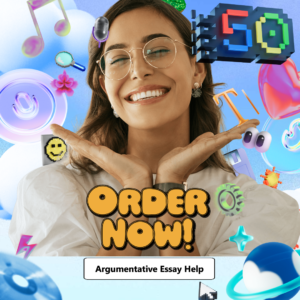Hooks for essays work as a bait to grab the attention of readers. In today’s world of flashy content present in abundance attracting the eye-balls of potential targets is one of the difficult tasks. Therefore, good hooks for essays are essential to grab all that attention of the reader before they decide to move on. All the different types of hooks for essays and how they should be utilized within a post are presented in this detailed article. This post not only help figure out the best hooks for your essay but also dives into the details about their specific use-cases.
These hooks are also usable in all type of argumentative essays, if you are looking for argumentative essay topics, have a look at our list of good argumentative essay topics as well.

good hooks for essays
Types of hooks for essays
Question Hooks For Essays
A Question Hook is a strategy where you start your essay by asking a thought-provoking question related to your topic. This type of hook engages readers by inviting them to think critically about the subject and encourages them to keep reading in order to find an answer or solution. It’s effective because humans naturally want to seek answers to questions, and when a reader is presented with a compelling question, it creates curiosity.
Quotation hooks for essays
A Quotation Hook captures attention by using a quote that relates to your topic. It can be from a famous person, a literary work, or an authoritative figure. This type of hook is typically a single sentence or a brief set of sentences that sets the tone for the essay. A well-chosen quote piques the reader’s curiosity and adds credibility, making them more interested in reading further. By highlighting the significance of the topic early on, a quotation hook also increases the chance of receiving a positive response from the reader.
Statistic hooks for essays
A Statistic Hook provides an interesting or surprising statistic that catches the reader off guard. Numbers can make an argument feel more concrete and credible. Readers are naturally drawn to factual information, and a strong statistic can set the stage for your essay’s main point.
Anecdote hooks for essays
An Anecdote Hook starts with a brief personal story or example related to your topic. It brings a human element to your essay, which helps to build an emotional connection with the reader. A good anecdote is engaging, relatable, and ties into the broader argument you’re making.
Bold Statement hooks for essays
A Bold Statement Hook opens with a strong, assertive statement. It can be controversial or challenge the reader’s assumptions, which grabs their attention immediately. This type of hook encourages readers to keep reading to see how you’ll support or explain your bold claim.
Definition hooks for essays
A Definition Hook starts with the definition of a key term related to the essay topic. This can help clarify a concept for the reader or introduce a topic they might not be familiar with. A definition hook is effective when you’re discussing abstract or complex topics.
Metaphor or Simile hooks for essays
A Metaphor or Simile Hook compares one thing to another to create a vivid image or idea in the reader’s mind. By using creative language, this type of hook makes your topic more engaging and relatable, encouraging the reader to explore the comparison further.
Scene hooks for essays
A Scene Hook paints a picture with descriptive language to immerse the reader in a setting or moment. This draws the reader in by appealing to their senses and imagination. A well-crafted scene hook makes the reader want to know what happens next.
Fact hooks for essays
A Fact Hook introduces a surprising or lesser-known fact related to your topic. It grabs attention because readers are naturally intrigued by new information. A strong fact can lead smoothly into the topic of your essay and make readers want to learn more.
Rhetorical Question hooks for essays
A Rhetorical Question Hook is a question that doesn’t necessarily need an answer but prompts the reader to think critically about the topic. It gets them engaged and makes them consider their own views on the subject, creating an immediate connection with your essay.
Emotional hooks for essays
An Emotional Hook appeals to the reader’s emotions by presenting a situation that evokes feelings such as empathy, anger, or excitement. This type of hook makes a personal connection and encourages the reader to invest emotionally in your essay.
Contradiction hooks for essays
A Contradiction Hook starts with a statement that challenges conventional wisdom or a common belief. It creates intrigue by making the reader question their assumptions, motivating them to keep reading to see how you’ll justify your claim.
Dialogue hooks for essays
A Dialogue Hook begins with a snippet of conversation. This hook gives the essay a dynamic start and immediately places the reader in the middle of an interaction. Dialogue hooks can be compelling because they create an active, engaging entry into the topic.
Dilemma hooks for essays
A Dilemma Hook introduces a moral or ethical question that doesn’t have a straightforward answer. It engages readers by presenting a challenging problem they want to solve, encouraging them to think critically and continue reading for possible solutions.
Unexpected Fact or Statement hooks for essays
An Unexpected Fact or Statement Hook opens with a surprising or counterintuitive statement that goes against the reader’s expectations. This catches the reader off guard and makes them curious to see how you’ll support or explain the surprising claim.
Good Examples of Hooks For Essays
Question Hook – Ask a thought-provoking question related to your topic.
- Example: “What would the world look like without trees?”
Quotation Hook – Begin with a relevant or famous quote that ties into your topic.
- Example: “As Albert Einstein once said, ‘Imagination is more important than knowledge.’”
Statistic Hook – Present a surprising or interesting statistic to grab attention.
- Example: “Did you know that over 1.5 million children die each year due to lack of clean water?”
Anecdote Hook – Start with a short, personal story that leads into your topic.
- Example: “When I was ten, I had my first experience with failure, and it taught me more than any success ever could.”
Bold Statement Hook – Make a strong, assertive statement to challenge the reader.
- Example: “The internet has done more harm than good to modern society.”
Definition Hook – Provide a definition of a term central to your essay.
- Example: “Courage: the ability to do something that frightens you.”
Metaphor or Simile Hook – Use a comparison to create imagery and intrigue.
- Example: “Writing an essay is like building a house; without a solid foundation, it will crumble.”
Scene Hook – Paint a vivid picture with descriptive language.
- Example: “The sun dipped below the horizon, casting a fiery glow across the empty battlefield.”
Fact Hook – Present a surprising or lesser-known fact.
- Example: “Polar bears have black skin underneath their white fur.”
Rhetorical Question Hook – Pose a rhetorical question that leads readers to think critically.
- Example: “Is it really possible to achieve true happiness in a world driven by materialism?”
Emotional Hook – Appeal to the reader’s emotions to create an immediate connection.
- Example: “Imagine being a child forced to flee from your home with nothing but the clothes on your back.”
Contradiction Hook – Present an idea that goes against common beliefs to provoke curiosity.
- Example: “What if I told you that failure is the key to success?”
Dialogue Hook – Open with a short exchange of dialogue to intrigue the reader.
- Example: “‘We need to leave now,’ she said, her voice trembling.”
Dilemma Hook – Present a moral or ethical dilemma to engage critical thinking.
- Example: “Would you lie to protect someone you love, even if it meant betraying another?”
Unexpected Fact or Statement Hook – Present a surprising fact that challenges assumptions.
- Example: “Contrary to popular belief, coffee doesn’t actually wake you up; it just blocks sleep-inducing chemicals.”
